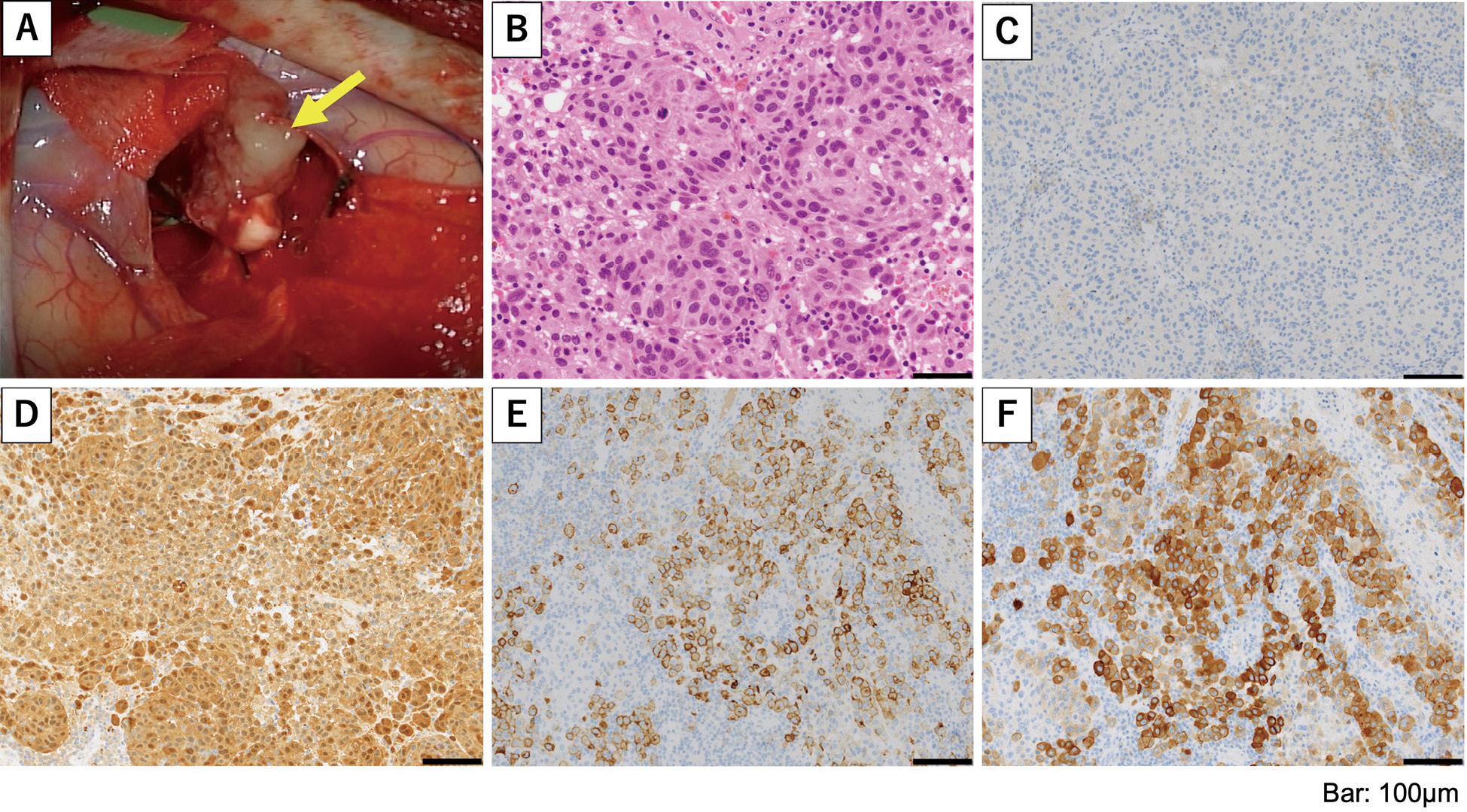- 著者
- Juntaro FUJITA Yusuke TOMITA Koichi ICHIMURA Rie YAMASAKI Shohei NISHIGAKI Yuki NITTA Yusuke INOUE Yuta SOTOME Naoya KIDANI Kenichiro MURAOKA Nobuyuki HIROTSUNE Shigeki NISHINO
- 出版者
- The Japan Neurosurgical Society
- 雑誌
- NMC Case Report Journal (ISSN:21884226)
- 巻号頁・発行日
- vol.10, pp.67-73, 2023-12-31 (Released:2023-03-24)
- 参考文献数
- 17
Melanoma carries a high risk of brain metastasis. A small subset of metastatic melanomas, known as amelanotic melanomas, does not present black coloration, reflecting a lack of melanin pigmentation. Here, we report a case of B-Raf proto-oncogene (BRAF) V600E mutation associated with a metastatic brain tumor caused by the amelanotic melanoma. A 60-year-old man was transferred to our department following acute onsets of left upper limb paralysis and convulsion. In the brain imaging, multiple lesions in the right frontal lobe and left basal ganglia were detected, and the presence of an enlarged left axillary lymph node was revealed. Consequently, we removed the right frontal lesion and performed a biopsy of the left axillary lymph node. Histological analysis of both specimens indicated an amelanotic melanoma, and genetic testing revealed a BRAF V600E mutation. The residual intracranial lesions were treated with stereotactic radiotherapy and molecular-targeted therapy, with dabrafenib and trametinib as the systemic treatment. Based on the Response Evaluation Criteria in Solid Tumors, we determined that the patient achieved complete remission (CR) under uninterrupted molecular-targeted therapy over a period of 10 months. After the temporary withdrawal of dabrafenib and trametinib to avoid hepatic dysfunction, a new intracranial lesion appeared. CR of this lesion was achieved following reinstatement of the two drugs. These results suggest that, under limited conditions, molecular-targeted therapy can produce a sustained response against the intracranial metastasis of melanoma, and the therapy with reduced dose is still effective against a recurrent case after cessation of the therapy due to the toxicity.
